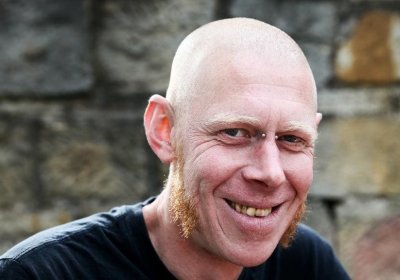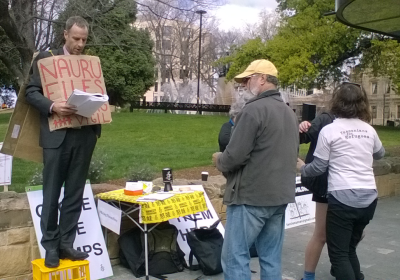Matt Haubrick reports on a successful community campaign against another government attempt to introduce a draconian anti-protest law.
nipaluna/Hobart
Hundreds of people joined a rally on Parliament Lawns in Hobart to call for whistleblower Julian Assange to be freed and support public interest journalism, reports Tristan Sykes.
LGBTI activists and supporters have vowing to continue the campaign for next-of-kin recognition for same-sex couples. Matt Haubrick and Rose Matthews report.
MPs and Reuter’s former bureau chief in Baghdad have again called for Wikileaks founder Julian Assange to be released, reports Carrie-Ann Smith.
When public service unions in Tasmania realised the seriousness of the COVID-19 outbreak, they acted swiftly to protect workers, reports Jenny Forward.
In a dawn raid on May 4, about 20 police descended on protesters, who had set up tents on the lawn in front of Hobart’s Parliament House to protest the state government’s lack of response to Hobart’s housing crisis, and ordered them to move on.
Astro Labe, the Hobart DJ who headbutted former Prime Minister Tony Abbott in September last year, has been sentenced to the maximum six-month jail term. He will be eligible for parole after two months, when he will be required to pay $2000 and commit no offence for two years.
The Hobart Magistrates Court was told Labe had been drinking at the Whaler pub in Salamanca Place when he saw Abbott walk past. Labe followed him and asked to shake his hand, before headbutting him, saying “you fucking deserved it”. Abbott was left with a swollen lip after the incident.
Tasmanian elections are decided by the Hare-Clark system, a method of proportional voting that means a party must secure close to half the total vote to win majority government.
It is a complex system in which a voter has a single transferable vote in one of the five electorates, each of which elect five members of parliament. The system often produces close results and minority governments. It also means seats are rarely decided on election night.
Vigil protests were held on May 25, in Hobart and Melbourne, to mark 100 days of peaceful occupation of the wildlife-rich forests of Tasmania’s Tarkine. The vigil, organised by the Bob Brown Foundation and Save the Tarkine, urged members of the Legislative Council to reject the Hodgman government's proposed destructive forests legislation and to provide National Park protection for the Tarkine.
Every day, people’s human rights are violated. In detention centres like those on Nauru and Manus Island, such violations are not just allowed but enforced by the Australian government. However, last month people stood together for nine hours to tell the Australian government that they would not accept it any longer.
The vigil was held in the Hobart CBD from 10am to 7pm. People took turns reading to onlookers from the Nauru case files that were recently leaked by the Guardian. Others held placards and banners with messages of solidarity for the people in detention centres at Manus and Nauru.
- Previous page
- Page 2
- Next page











